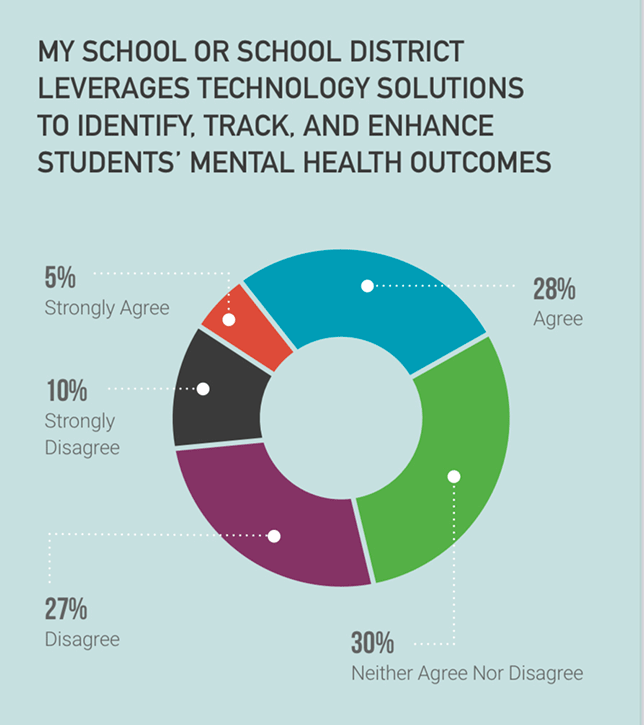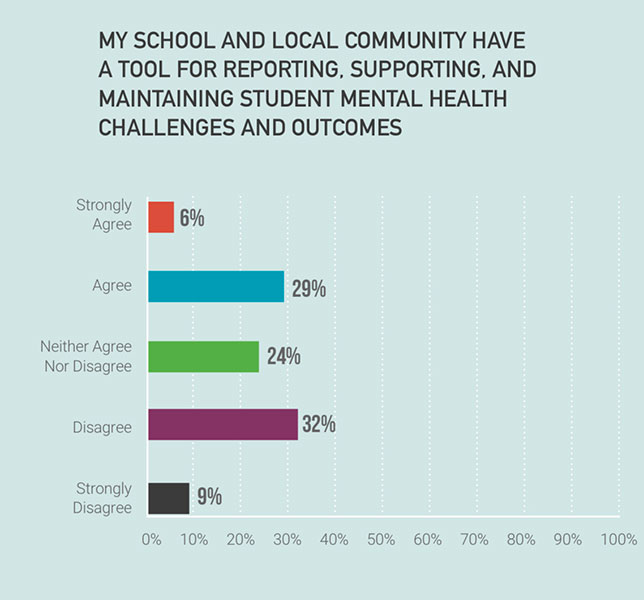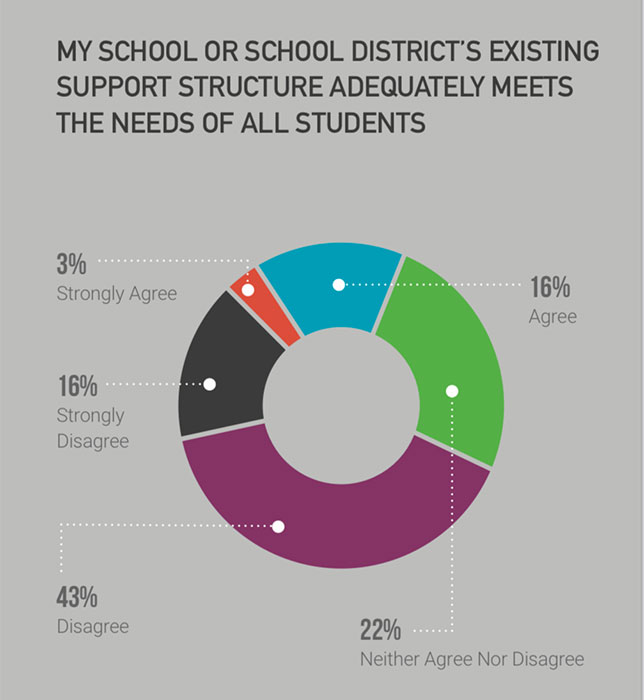Ed Tech Is Critical to Addressing the Student Mental Health Crisis
How Districts Can Use Technology to Help Meet Student Needs
- By Gary Pettengell
- 07/24/23
At the height of the COVID-19 pandemic, U.S. Surgeon General Vivek Murthy issued an urgent advisory: “The pandemic era's unfathomable number of deaths, pervasive sense of fear, economic instability, and forced physical distancing from loved ones, friends, and communities have exacerbated the unprecedented stresses young people already faced.”
While our day-to-day lives have mostly returned to normal since Murthy’s warning, student mental health outcomes have continued to decline.
ECINS’ State of Mental Health in Today’s Schools survey, which gathered input from more than 350 school social workers, teachers, counselors, administrators, and district leaders, found that 85% of respondents agree or strongly agree that students are more stressed and anxious than in previous school years, undermining everything from personal well-being to academic achievement.
These findings align with other academic studies, including findings from the Institute of Education Sciences (IES), which reported a 70% increase in students seeking mental health services since the start of the pandemic, noting that 80% of public schools “have seen stunted behavioral and socioemotional development in their students.”

Photo credit: Courtesy of ECINS: The State of Student Mental Health Survey, 2023
They also provide critical context to K–12 schools experiencing declines in math and reading test scores and recent CDC data indicating that teenage girls are reporting increasing mental health challenges, experiences of violence, and suicidal thoughts and behaviors in the past year.
Students’ unique mental health challenges require all stakeholders to work closely and collaboratively to help all students thrive physically, emotionally, and academically. With school social workers, teachers, counselors, and administrators already working exceptionally hard to support their students, ed tech solutions will play an important role in helping schools meet students where they are, providing effective solutions that enable impact at scale.
How Ed Tech Can Help
Ed tech can play a crucial role in helping schools address the student mental health crisis. By leveraging technology, schools can create a more supportive and effective environment for students.
For example, 70% of survey respondents agree or strongly agree that students are willing to communicate their needs and ask for help from a trusted adult at school. However, 85% of respondents say they agree or strongly agree that they wish they had more tools or resources to help students address their various mental health challenges.
Collaborative ed tech resources can help schools address that concern. Rather than relying on rudimentary or ad hoc reporting solutions, digital documentation and collaborative case management tools allow staff to confidently connect students with the necessary resources.

Photo credit: Courtesy of ECINS: The State of Student Mental Health Survey, 2023
Students don’t want to navigate this difficult season alone. Collaborative case management solutions help ensure that trusted staff can take advantage of existing expertise to support student outcomes.
At the same time, digital learning platforms can help districts provide mental health, SEL, and other relevant training to help them adequately meet student needs. This enables educators and support staff to effectively address student needs. By utilizing these online platforms, districts can ensure that their personnel are well equipped with the latest knowledge and best practices in these essential areas. As a result, the overall educational experience is enhanced, fostering a supportive and nurturing environment for students to thrive academically and emotionally.
Meanwhile, many schools are struggling to keep up with the demand for more mental health professionals to support surging student caseloads.
Virtual counseling services can make mental health support more accessible to students who may not have access to these services otherwise. Schools can partner with online mental health providers to offer virtual counseling sessions to students who need them.

Photo credit: Courtesy of ECINS: The State of Student Mental Health Survey, 2023
Ed tech alone won’t solve the student mental health crisis, but it can be a valuable resource for schools as they work diligently to help their students thrive.
Innovating to Support Students
The mental health crisis among students is an urgent issue that requires a multifaceted approach from all stakeholders, including educators, administrators, and mental health professionals. As schools grapple with the increasing demand for mental health support, ed tech solutions can play a critical role in enhancing the efforts of school staff and providing students with more accessible and effective resources.
Collaborative case management tools, digital learning platforms, and virtual counseling services are just a few examples of how ed tech can empower schools to address the mental health challenges faced by their students. While technology is not the sole solution, it can be a powerful ally in the fight against the student mental health crisis.
As schools continue to innovate and adopt new strategies, it is crucial to prioritize the implementation of ed tech resources to bolster the support system for students, ultimately helping them thrive in the face of adversity.